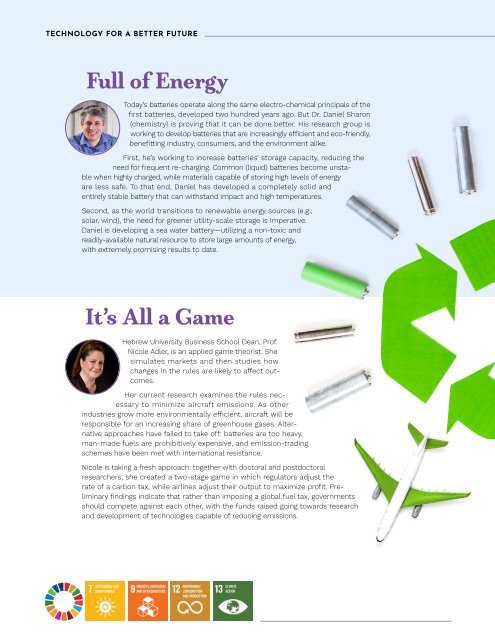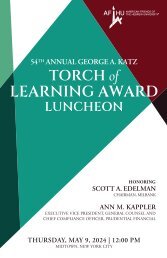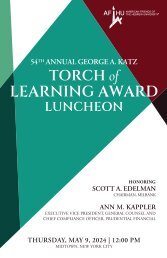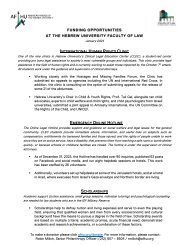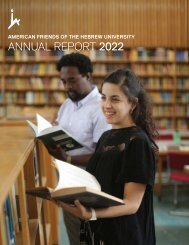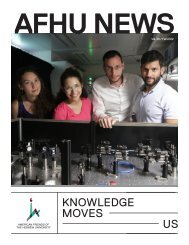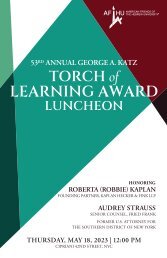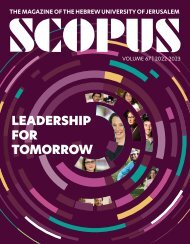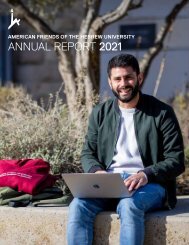Scopus Magazine 2023
Create successful ePaper yourself
Turn your PDF publications into a flip-book with our unique Google optimized e-Paper software.
Technology for a Better Future<br />
Full of Energy<br />
Today’s batteries operate along the same electro-chemical principals of the<br />
first batteries, developed two hundred years ago. But Dr. Daniel Sharon<br />
(chemistry) is proving that it can be done better. His research group is<br />
working to develop batteries that are increasingly efficient and eco-friendly,<br />
benefitting industry, consumers, and the environment alike.<br />
First, he’s working to increase batteries’ storage capacity, reducing the<br />
need for frequent re-charging. Common (liquid) batteries become unstable<br />
when highly charged, while materials capable of storing high levels of energy<br />
are less safe. To that end, Daniel has developed a completely solid and<br />
entirely stable battery that can withstand impact and high temperatures.<br />
Second, as the world transitions to renewable energy sources (e.g.,<br />
solar, wind), the need for greener utility-scale storage is imperative.<br />
Daniel is developing a sea water battery—utilizing a non-toxic and<br />
readily-available natural resource to store large amounts of energy,<br />
with extremely promising results to date.<br />
It’s All a Game<br />
Hebrew University Business School Dean, Prof.<br />
Nicole Adler, is an applied game theorist. She<br />
simulates markets and then studies how<br />
changes in the rules are likely to affect outcomes.<br />
Her current research examines the rules necessary<br />
to minimize aircraft emissions. As other<br />
industries grow more environmentally efficient, aircraft will be<br />
responsible for an increasing share of greenhouse gases. Alternative<br />
approaches have failed to take off: batteries are too heavy,<br />
man-made fuels are prohibitively expensive, and emission-trading<br />
schemes have been met with international resistance.<br />
Nicole is taking a fresh approach: together with doctoral and postdoctoral<br />
researchers, she created a two-stage game in which regulators adjust the<br />
rate of a carbon tax, while airlines adjust their output to maximize profit. Preliminary<br />
findings indicate that rather than imposing a global fuel tax, governments<br />
should compete against each other, with the funds raised going towards research<br />
and development of technologies capable of reducing emissions.


